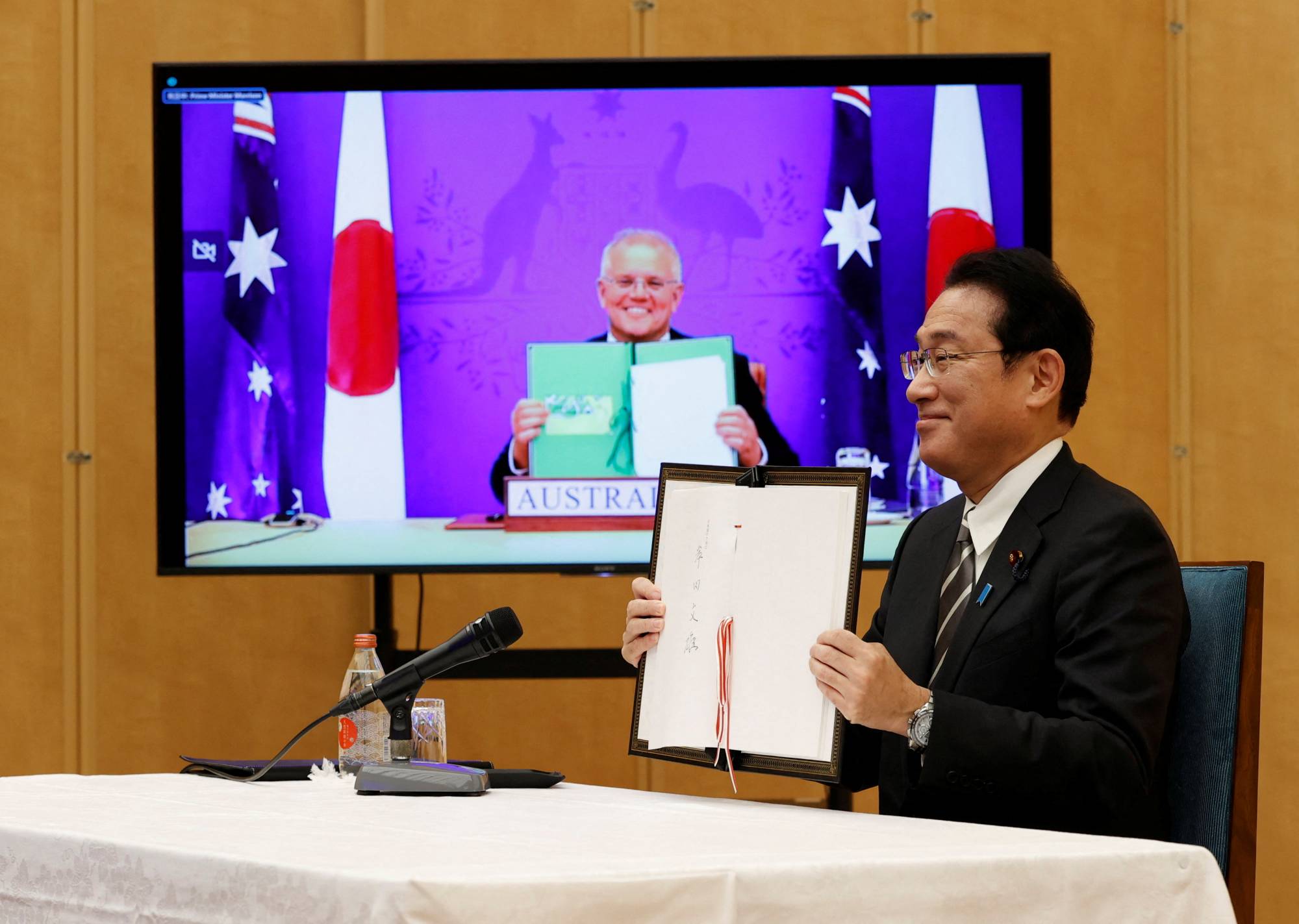The Reciprocal Access Agreement (RAA) between Japan and Australia is a big deal. Prime Minister Fumio Kishida is right to call it “a landmark agreement that will take Japan-Australia security cooperation to a new level,” but it’s much more than that. The RAA is one more strand — albeit a big one — in the diversifying and thickening web of security relations that is emerging in the Indo-Pacific region.
The RAA crystallizes the desire of those two governments to transform their security relationship at a time of great and growing uncertainty. Despite that shared ambition, negotiations took seven years. A formidable obstacle were provisions that govern the treatment of Australian troops who might commit crimes, a problem since Japan has the death penalty and Australia does not. The agreement was wrapped up last year and while there were hopes for a high-profile signing ceremony by the two prime ministers, they were squelched by the COVID-19 pandemic.
The RAA is Japan’s second formal defense pact with another country and confirms Australia’s status as its second most important security partner — after the United States, Japan’s only treaty ally. The agreement enables a slew of activities. According to a statement from the Australian Prime Minister’s Office, the RAA “will establish standing arrangements for the ADF and the JSDF to facilitate cooperative activities such as joint exercises and disaster relief operations, including those of greater scale and complexity, while improving the interoperability and capability of the two countries’ forces.” Australian Prime Minister Scott Morrison said that after the agreement, “We will be completely interoperable between what we can do and how we deploy together.”


















With your current subscription plan you can comment on stories. However, before writing your first comment, please create a display name in the Profile section of your subscriber account page.